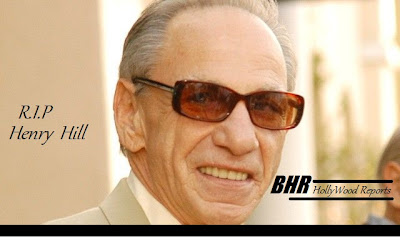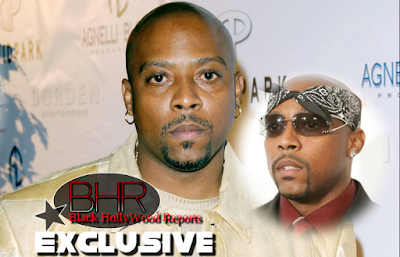Henry Hill, Mobster and Movie Inspiration, Dies at 69
Henry Hill, a soldier in the Luchese organized-crime family whose decision to turn federal informer, and subsequent itinerant life in and out of the federal witness protection program, inspired Martin Scorsese’s acclaimed film “Goodfellas,” died on Tuesday in Los Angeles. He was 69 and had lived openly in Topanga, Calif., in recent years.
He had previously lived — far less openly — in Seattle; Cincinnati; Omaha; Butte, Mont.; and Independence, Ky., among many other places, as well as in the United States Penitentiary in Lewisburg, Pa.
His death, in a hospital, came after a series of health problems that included heart disease and the toll of years of heavy smoking, his fiancée, Lisa Caserta, said.
A native New Yorker of half-Irish, half-Sicilian parentage, Mr. Hill was involved with the Luchese family, considered the most powerful of the city’s original five Mafia families, from his youth in the 1950s until 1980.
That year, arrested on drug-trafficking charges and facing the prospect of a long prison term, to say nothing of possible execution by his former bosses, Mr. Hill became a government witness against his past associates. His testimony in multiple trials helped send dozens of people to prison.
In Mr. Scorsese’s movie, released in 1990 and currently ranked 92nd on the American Film Institute’s list of the top 100 pictures, Mr. Hill is played by Ray Liotta. The film was based on Nicholas Pileggi’s best-selling biography, “Wiseguy: Life in a Mafia Family,” published in 1985.
Mr. Hill wrote several books of his own, including “The Wiseguy Cookbook” (2002; with Priscilla Davis), a collection of recipes and reminiscences that includes a disquisition on the problems of finding authentic pecorino Siciliano in the flyspecks on the map to which Mr. Hill was frequently consigned.
A garrulous figure to whom the anonymity of the witness protection program was anathema — he was expelled from the program in 1987 for relentless misbehavior that included drug possession — Mr. Hill took part in several headline-making crimes during his underworld days.
 Chief among them was the Lufthansa heist of 1978, in which he and confederates robbed the airline’s cargo terminal at Kennedy International Airport of $5 million in cash and nearly $1 million in jewels.
Chief among them was the Lufthansa heist of 1978, in which he and confederates robbed the airline’s cargo terminal at Kennedy International Airport of $5 million in cash and nearly $1 million in jewels.
At the time, the heist was widely described as the most lucrative cash robbery in the United States. Mr. Hill, who was not prosecuted for his role in the case, testified against other participants.
In the late 1970s, Mr. Hill was also involved in a point-shaving scandal at Boston College, in which basketball players were bribed to fix games.
Although Mr. Hill said in interviews — and he gave a lot of them — that he had never killed anyone, by his own admission he knew, quite literally, where a great many bodies were buried.
“I was present when people got murdered,” he told The Advocate of Stamford, Conn., in 2010. “I dug a lot of holes.”
After leaving witness protection, Mr. Hill lived in comparative safety: most of those he feared were either dead or in prison. But given his former line of work, he remained suitably wary, moving often and adopting disguises as needed.
“If I go to the racetrack, I put a hat and glasses on, and I take my teeth out,” he told the British newspaper The Independent in 2001. “You can’t recognize me, trust me.”
Mr. Hill was a frequent guest on television talk shows, including Geraldo Rivera’s, and on Howard Stern’s radio show. He also started a Web site, goodfellahenry.com, on which he sold memorabilia and dispensed practical advice on subjects like “Best Ways to Hide a Corpse.”
But beneath Mr. Hill’s surface charm and ready self-justification lay a lifelong addiction to drugs and alcohol and, family members have said, a flash-flood propensity for violence.
Henry Hill was born in Manhattan on June 11, 1943, and raised in Brooklyn. His father, an electrician who worked on the construction of the World Trade Center, deplored the local Mafiosi and tried to impress on his son the need for a suitable vocation.
“I actually wanted to be a priest,” Henry Hill told The Chicago Tribune in 1986. “But that didn’t work out.”
He was soon seduced, he said, by the flash and dazzle of the neighborhood wiseguys, with their sleek cars, glinting rings and glittering women. At about 12, he began work as an errand boy at a local mob-run cab stand and pizzeria, where he refined his budding love of cooking. By 13 he was catering some of Brooklyn’s biggest permanent floating craps games.
He joined the Army at 17 and soon had a tidy sideline in surplus mess-hall steaks, which he sold to restaurants near his base at Fort Bragg, in North Carolina.
He was discharged several years later, he wrote, when he started a brawl and, after the sheriff arrived, elected to steal the sheriff’s car. He returned to Brooklyn and the mob, becoming a protégé of Paul Vario, a capo in the Luchese organization.
Mr. Hill’s portfolio included arson, numbers running, truck hijacking, loan sharking, assault and dealing cocaine and heroin. In the 1970s, he served four years in Lewisburg on an extortion charge.
Mr. Hill’s behavior, often intensified by drugs and alcohol, could be highly erratic. In “On the Run: A Mafia Childhood,” a joint memoir published in 2004, his son Gregg (who was 13 when the family went underground) and his daughter, Gina (who was 11), recounted their father’s hair-trigger temper.
“On my 17th birthday, he beat me within an inch of my life and then took a butcher knife to a picture of me,” Gina Hill, promoting the book on Fox News, told Greta Van Susteren.
Mr. Hill’s marriage to his first wife, Karen (portrayed by Lorraine Bracco in “Goodfellas”), ended in divorce. He is survived by their children, Gregg and Gina, both of whom have long lived under other names. Also surviving is a son from his marriage (possibly a common-law union) to his second wife, Kelly; a brother; four sisters; and four grandchildren.
For all Mr. Hill’s celebrity as an erstwhile criminal, he was never entirely rehabilitated. In 2005, while working as a chef in North Platte, Neb., he pleaded no contest to attempted possession of methamphetamine and, in a plea agreement, was sentenced to 180 days in jail. Later that year, he was sentenced to another 180 days, to be served concurrently, for threatening his wife, Kelly, and another man with a knife.
He yearned, he sometimes said, to be other than what he was. “I wish I could be more like normal people — like these people here,” he told The Yakima Herald-Republic of Washington in 2003, indicating passers-by in Leavenworth, Wash., his hometown of the moment. “I don’t know how.”
But Mr. Hill did manage to find time for ordinary pleasures. As he often said, he never missed an episode of “The Sopranos.” I'm Big Blac this is your BHR HollyWood Report R.I.P Henry Hill


















Comments